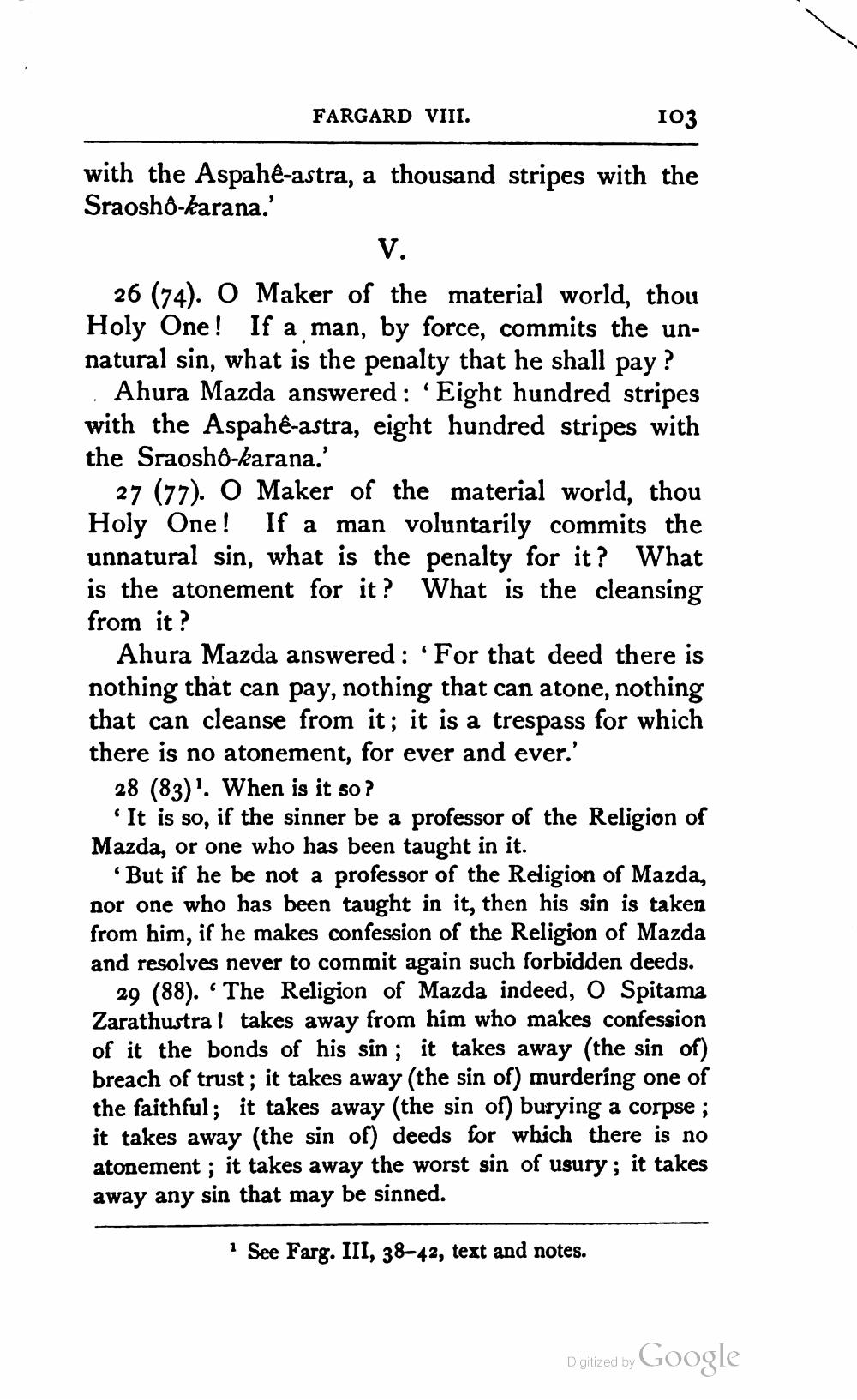________________
FARGARD VIII.
103
with the Aspahê-astra, a thousand stripes with the Sraoshô-karana.'
26 (74). O Maker of the material world, thou Holy One! If a man, by force, commits the unnatural sin, what is the penalty that he shall pay ?
Ahura Mazda answered: 'Eight hundred stripes with the Aspahê-astra, eight hundred stripes with the Sraoshô-karana.
27 (77). O Maker of the material world, thou Holy One! If a man voluntarily commits the unnatural sin, what is the penalty for it? What is the atonement for it? What is the cleansing from it?
Ahura Mazda answered: 'For that deed there is nothing that can pay, nothing that can atone, nothing that can cleanse from it; it is a trespass for which there is no atonement, for ever and ever.' 28 (83)”. When is it so ?
It is so, if the sinner be a professor of the Religion of Mazda, or one who has been taught in it.
But if he be not a professor of the Religion of Mazda, nor one who has been taught in it, then his sin is taken from him, if he makes confession of the Religion of Mazda and resolves never to commit again such forbidden deeds.
29 (88). "The Religion of Mazda indeed, O Spitama Zarathustra ! takes away from him who makes confession of it the bonds of his sin ; it takes away (the sin of) breach of trust; it takes away (the sin of) murdering one of the faithful; it takes away (the sin of) burying a corpse ; it takes away (the sin of) deeds for which there is no atonement; it takes away the worst sin of usury; it takes away any sin that may be sinned.
See Farg. III, 38–42, text and notes.
Digitized by Google




